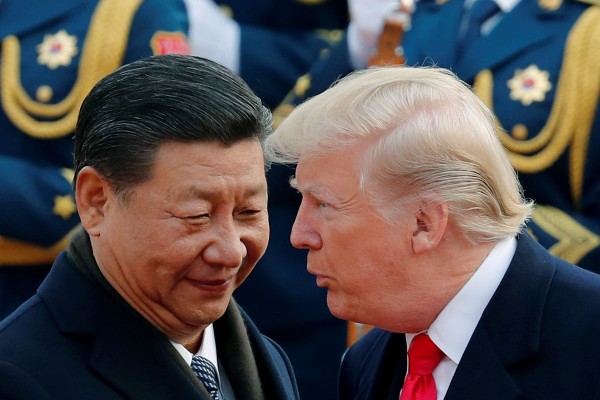For the past 10 years, I have been positive about the prospects for equities.
But at the end of May, I downgraded my view to neutral as the trade war between the US and China escalated.
The rhetoric between the two superpowers was becoming more hard line, and I foresaw the risks for equities rising.

An impasse in trade talks would lead to the ratcheting up of tariffs and slower economic growth
It appeared to me that the Chinese had decided to take a firmer line in negotiations, reducing the chances of a deal.
After being positive for such a long time, I did not change my view lightly.
In my opinion, an impasse in trade talks would lead to the ratcheting up of tariffs and slower economic growth.
In the months that followed, however, equities rallied. In the short term at least, I appeared to be wrong.
But nothing has changed since to make me more optimistic.
President Trump’s announcement of an additional round of tariffs in early August heightens my caution.
Frustrated by increasingly fruitless negotiations with China, he has significantly raised the stakes in a trade war that has been dragging on for more than a year.
At some stage the uncertainty is likely to knock consumer spending, leading to lower global global growth, although maybe not a full-blown recession.
In 2018 and early 2019, I believed the two sides were likely to reach an agreement.
Logically, it is in both countries’ interests.
President Trump needs a stronger economy ahead of the 2020 election.
President Xi Jinping needs the strong economic growth that traditionally begets stability in China, lifting people out of poverty and providing jobs for the young.
More recently, however, all the signs are that an impasse is likely that would cause a further deterioration in the economic outlook.
When the US trade delegates visited Beijing in August, they left after a morning.
After meeting earlier this month, the two side agreed a partial deal, with the suspension of one set of impending tariffs, but the December tariffs still remain in place.
Keeping on track
Think of the global economy as a train travelling down a set of narrow railway tracks.
Central banks are the drivers steering a delicate course between, on the one hand, much stronger growth driven by low interest rates and Quantitative Easing (QE), and, on the other, a deteriorating economic environment, low inflation, maybe even deflation.
For the past 10 years, we have travelled these tracks, worried at different times about the “fire” of excessive growth, or the “ice” of low growth. Now, central bankers fear ice most of all.











